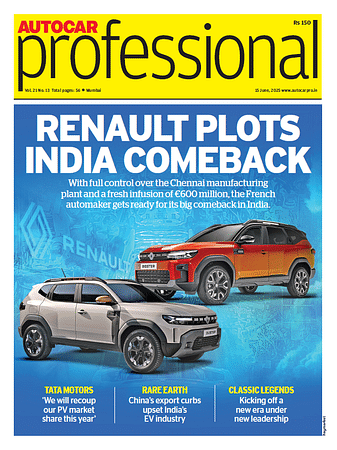Fuel price increase on the cards as crude spikes by nearly 20%
Drone attacks on key Aramco refineries causes biggest jump in crude oil prices since Saddam Hussein's invasion of Kuwait in 1991.
With global crude prices spiking to $71.95 (Rs 5,144) per barrel, up by 19.5 percent on Monday morning due to geopolitical tensions after drone attacks on Saudi Arabia's refineries on Saturday by Houthi rebels, the news is not good for motorists in India, and globally.
Oil companies and industry experts expect tougher days ahead for retail consumers as well as for the country's foreign exchange, which has already been under pressure in recent months. This near 20-percent spike in international price of crude oil is the biggest jump since Saddam Hussein's invasion of Kuwait in 1991.
As is known, petrol and diesel prices are directly linked with international crude prices. Though India has adopted a daily pricing mechanism since the past few years, the retail price tag is maintained at a 14-day average. With elections around the corner in certain States including Maharashtra, the government may try to restrict a sharp price hike, the industry insiders said.
Petrol price today
Mumbai: Rs 77.69 per litre
Pune: Rs 77.47 per litre
Delhi: Rs 72.07 per litre
Diesel price today
Mumbai: Rs 68.6 per litre
Delhi: Rs 65.46 per litre
Pune: Rs 67.32 per litre
Commenting on the development K Ravichandran, Group Head & Senior VP, Corporate Ratings, ICRA Ltd said, "The retail price will surely increase in the coming days, though gradually." The Central government deregulated petrol prices in 2010 and diesel prices in 2014.
According to industry estimates, if crude oil price rises by $1 per barrel, the net import bill will increase by Rs 3,029 crore. Further, if the exchange rate rises by one rupee to a dollar, the net import bill will increase by Rs 2,473 crore.
According to Abhishek Bansal, founder and chairman of currency derivative and broking firm Abans group, the risk premium has shot up multi-fold in the oil market after the drone attack on Aramco. A 19 percent opening rally in Brent oil indicates that retaliatory action from Saudi Arabia can disrupt the supply situation in the long term. "However, supply assurance from the US to release strategic petroleum reserves and Saudi to start one-third of disrupted oil in Aramco have helped the oil market to retrace some of the early gains," said Bansal.
Will India have to scout for other crude oil suppliers?
A drone attack last weekend on Saudi Arabia's state-owned company Aramco’s oil refineries triggered speculations of shortage of fuel supply worldwide. The development comes at a time when the world's largest oil company, generating around 10 percent of global oil, is preparing for an IPO.
Industry observers claim that the attack on the Aramco refineries was the biggest since the Gulf War of 1990s when Iraq's Saddam Hussein invaded Kuwait. The attacks took place on the Khurais and Abqaiq oil fields. While Khurais, the second largest oil field, has a capacity to pump about 1.5 million barrels per day (mbpd), Abqaiq is the world’s largest oil processing facility with a capacity to process more than 7 mbpd. The attack has impacted around half of the supplies from Saudi Arabia, which has traditionally been India's top oil source in for many years now. Saudi Arabia exported 40.33 million tonnes of crude oil in 2018-19, up from 36.16 million tonnes of crude oil sold in the previous year.
Emkay Global, in a report on Sunday, said that historically prices have jumped about 10 percent after such major events. Attributing it to sources, the report claims that the production halt is a preventive measure and could normalise within 48 hours. However, some global media reports suggest that it may take weeks for it to normalise which, if true, is expected to make things worse for India as it will then have to scout for other sources of procurement in order to meet its growing demand for fossil fuels.
RELATED ARTICLES
Skoda begins sale of made-in-India CKD Kushaq in Vietnam
Before production started, pre-series Kushaq vehicles covered over 330,000 kilometres on a variety of Vietnamese roads a...
Six Japanese companies join forces to expand use of recycled materials in new vehicles
Denso, Toray Industries, Nomura Research Institute, Honda Motor, Matec Inc and Rever Corporation have set up the BlueReb...
BYD selects Voestalpine as steel supplier for its Hungarian plant
The announcement of the Austrian steelmaker as a supplier demonstrates BYD’s strategic plan to source from high-quality,...





 16 Sep 2019
16 Sep 2019
 8792 Views
8792 Views





 Autocar Professional Bureau
Autocar Professional Bureau




